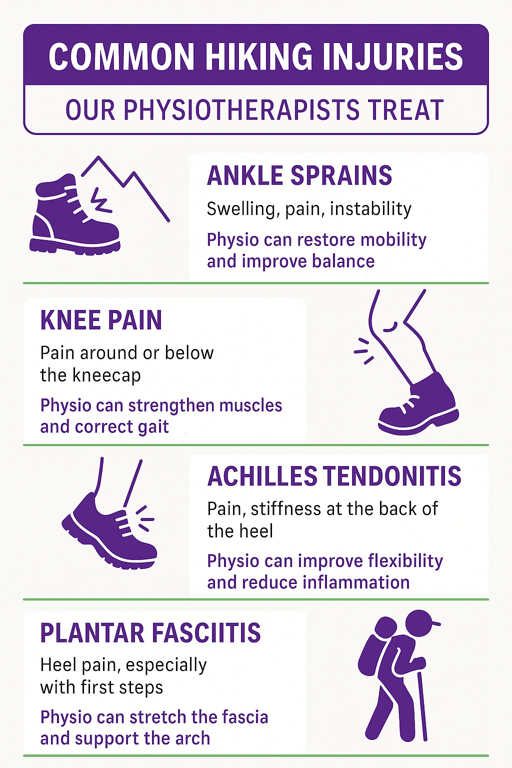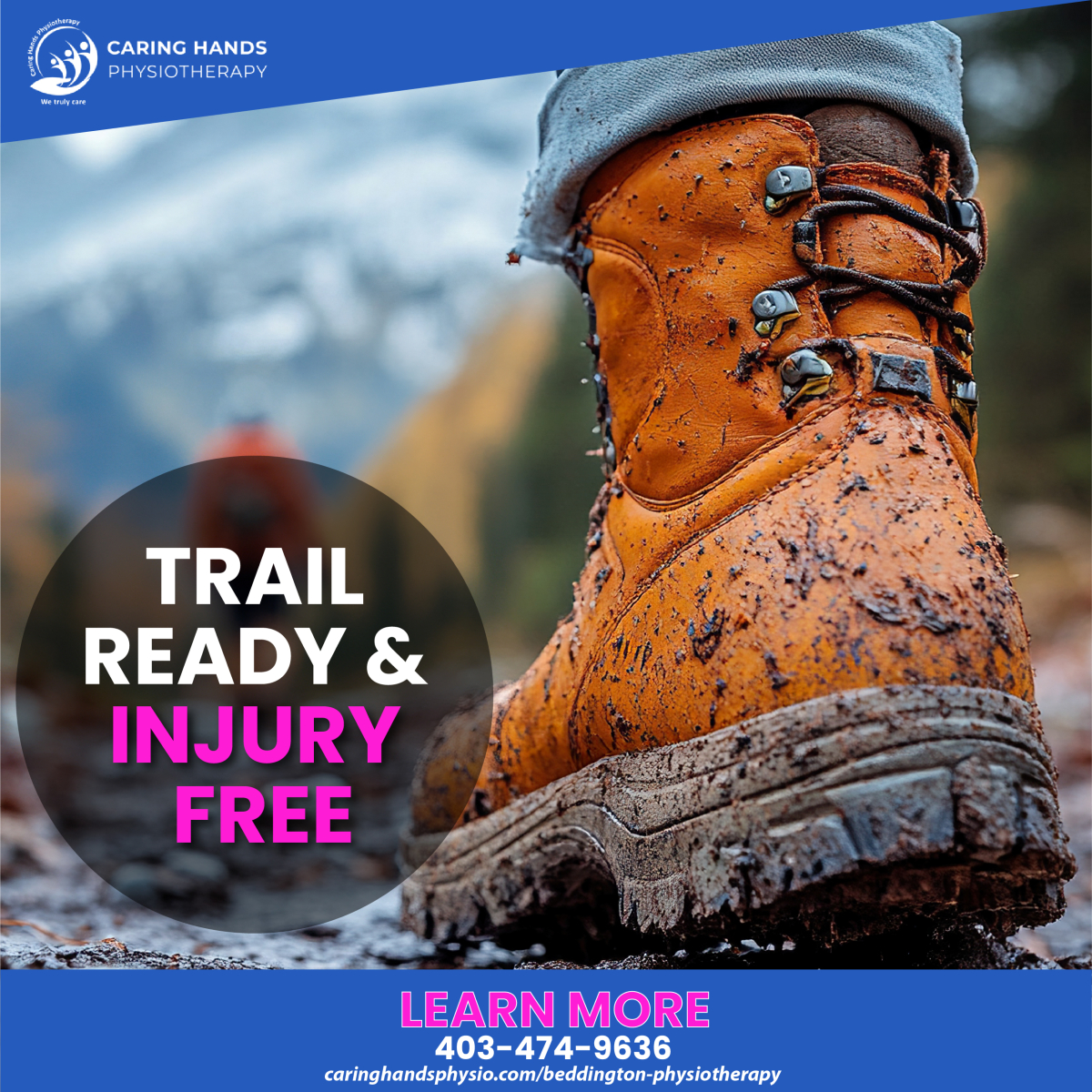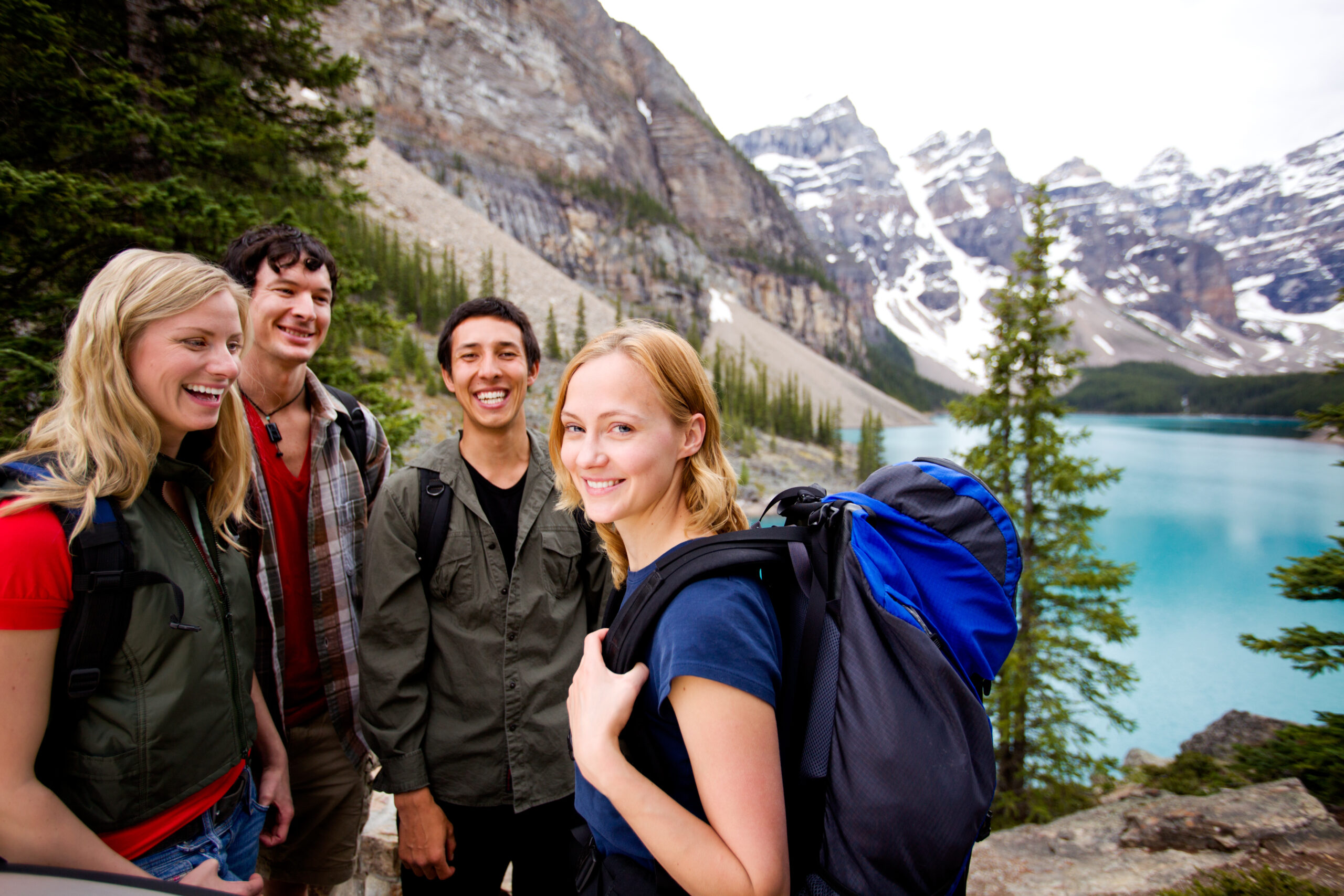From the scenic trails of Kananaskis Country to the rugged terrain of Banff National Park and family-friendly paths like Grassi Lakes or Fish Creek, hiking is one of Calgary’s favorite summer activities. Whether you’re a seasoned trekker or a weekend warrior, hiking offers great cardiovascular exercise, mental rejuvenation, and a connection with nature.
But it also comes with physical demands—and unfortunately, a risk of injury.
At Caring Hands Physiotherapy, we see an influx of hiking-related injuries every summer. Understanding what injuries are most common, how to prevent them, and what physiotherapy treatments are available can keep you safe, active, and back on the trails quickly if something goes wrong.
Why Hiking Injuries Happen in the Calgary Region
Calgary’s unique proximity to the Rocky Mountains means many residents can go from city streets to challenging terrain within an hour. While this accessibility is fantastic, it also means:
Combined with inconsistent weather and trail conditions, hikers are frequently exposed to situations where a wrong step or muscle imbalance can lead to injury.

Top Hiking Injuries Seen by Calgary Physiotherapists
1. Ankle Sprains
Cause: Rolling the ankle on uneven terrain
Symptoms: Swelling, bruising, pain while walking, instability
Physiotherapy Treatment:
2. Knee Pain (Patellofemoral Pain, IT Band Syndrome)
Cause: Long descents, steep climbs, poor muscle control
Symptoms: Pain under or around the kneecap, lateral knee pain, stiffness
Physiotherapy Treatment:
3. Achilles Tendonitis
Cause: Steep incline hiking, tight calves, poor footwear
Symptoms: Pain or stiffness at the back of the heel, especially in the morning
Physiotherapy Treatment:
4. Plantar Fasciitis
Cause: Flat or unsupported footwear, long trail duration
Symptoms: Sharp heel pain with first steps in the morning or after rest
Physiotherapy Treatment:
5. Low Back Strain
Cause: Heavy backpacks, poor core engagement, improper lifting
Symptoms: Dull or sharp pain in the lower back, stiffness, limited motion
Physiotherapy Treatment:
Preventing Hiking Injuries: Tips from Calgary’s Physiotherapy Experts

At Caring Hands Physiotherapy, we strongly believe that injury prevention is the best medicine. Here are science-backed tips to reduce your risk of getting hurt on the trail:
1. Condition Before the Season
Don’t go from couch to summit. A pre-hike strengthening program focusing on:
2. Choose the Right Footwear
Use proper hiking boots or trail shoes with good ankle support, grip, and shock absorption. Replace worn-out shoes before tackling high-impact trails like Ha Ling Peak or Sulphur Mountain.
3. Use Trekking Poles
Poles reduce knee strain during descents and improve balance on uneven terrain—especially useful for hikes like Lake Louise Teahouse or Ptarmigan Cirque.
4. Warm Up Before You Hike
Do 5–10 minutes of dynamic stretching and mobility work to prep muscles and joints:
5. Pace Yourself & Take Breaks
Many injuries result from fatigue. Listen to your body, hydrate regularly, and avoid overexertion—especially in higher altitudes around Canmore or Bragg Creek.
6. Pack Smart
Keep your backpack weight centered and light. Use both shoulder straps and a hip belt to distribute load. Improper backpack technique is a leading cause of back and shoulder strain.
7. Stretch and Recover After
Post-hike stretching can reduce soreness and improve flexibility:
Why Physiotherapy is Key to Getting Back on the Trail
Hiking injuries are often treated too late—many people "walk them off" or ignore the pain until it worsens. However, early physiotherapy intervention is proven to:
At Caring Hands Physiotherapy, we offer:

A group of friends on a hiking / camping trip in the mountains
Why Choose Caring Hands Physiotherapy in Calgary
With clinics in Country Hills, Falconridge, and Beddington, Caring Hands Physiotherapy is trusted by Calgary’s active population for expert care and personalized service.
We offer:
Whether you’ve just twisted an ankle on Heart Creek Trail or are recovering from a chronic overuse injury, we’ll help you return to the mountains safely and confidently.
📞 Book Your Hiking Injury Assessment Today
Let us help you conquer Calgary’s trails again—pain-free.
👉 Visit caringhandsphysio.com or call one of our three convenient Calgary locations to schedule your visit.
